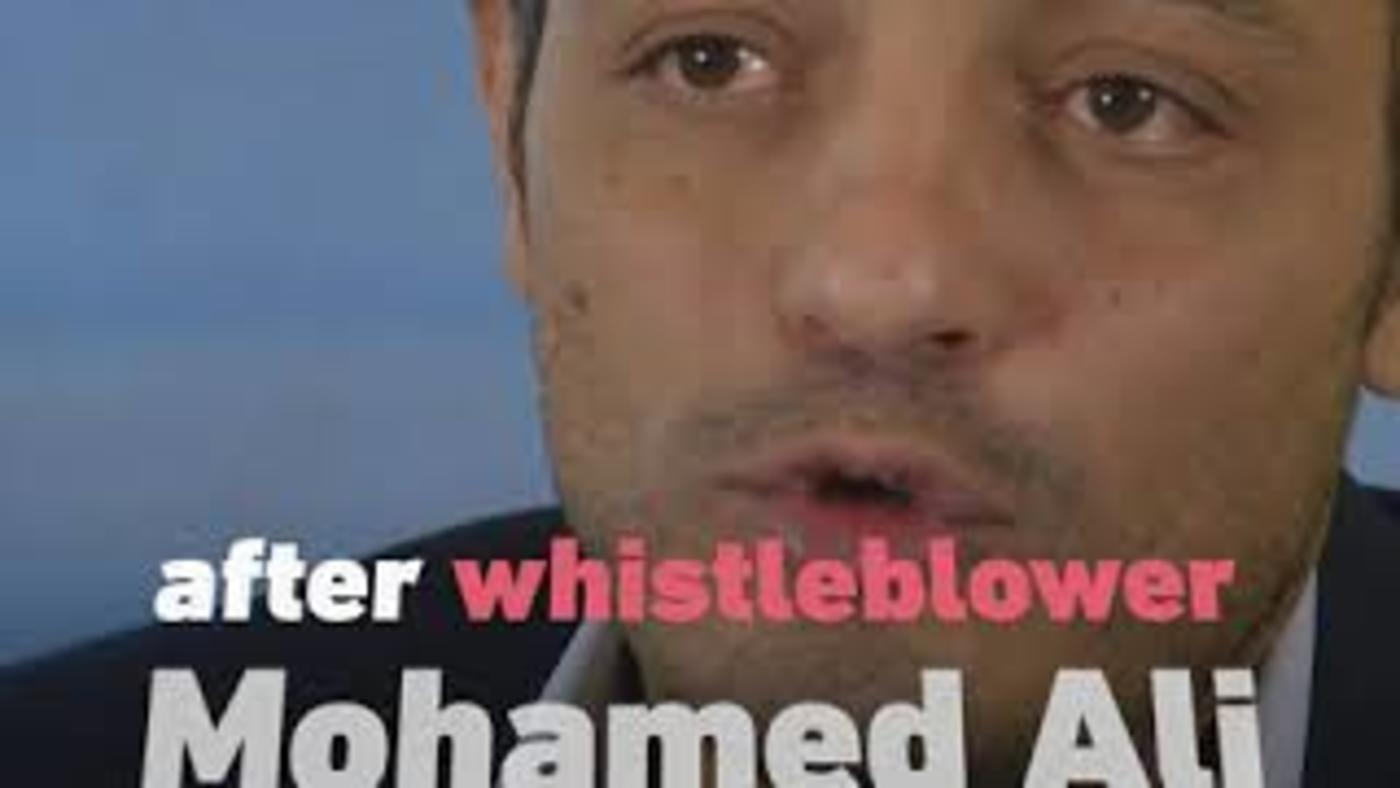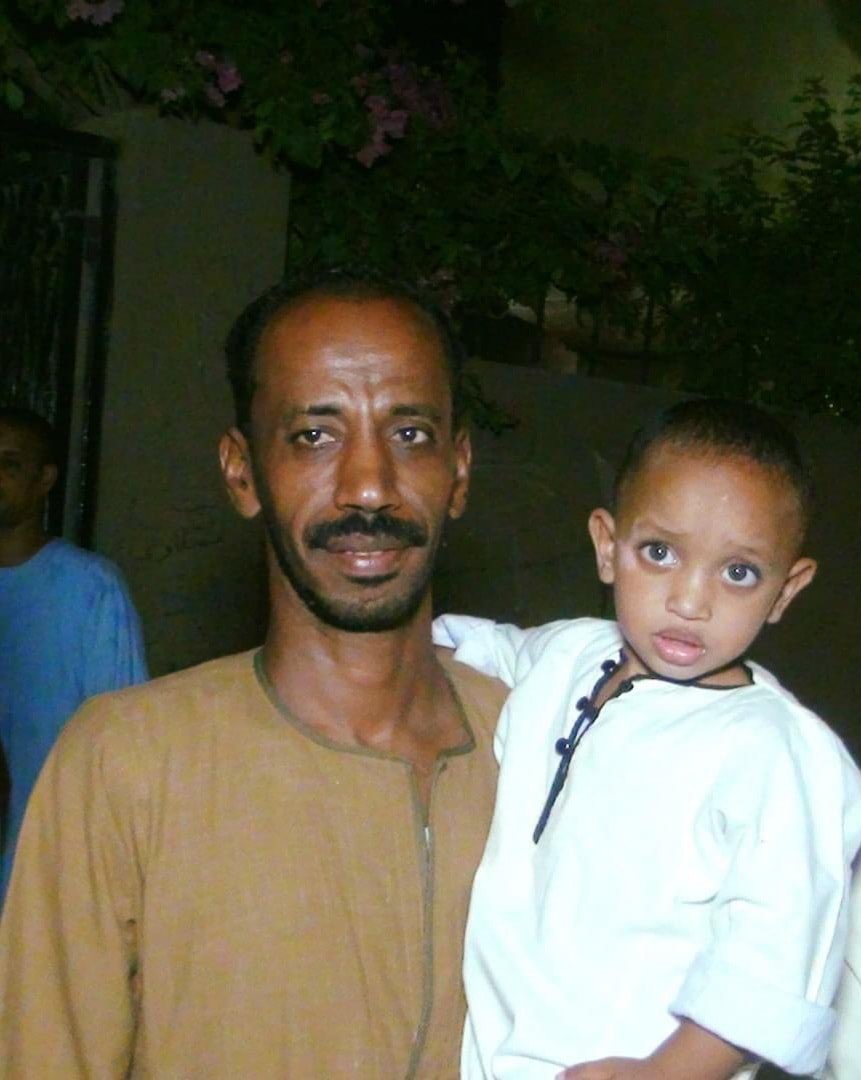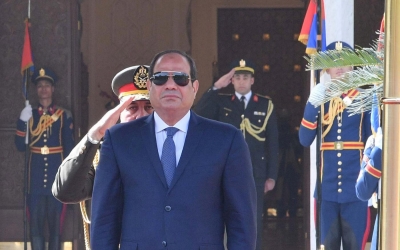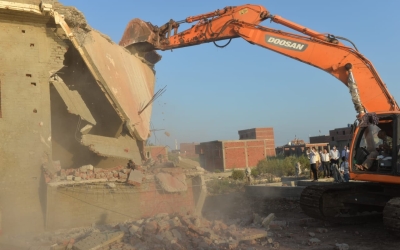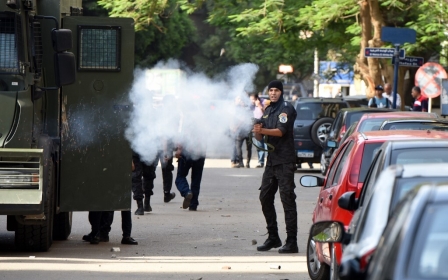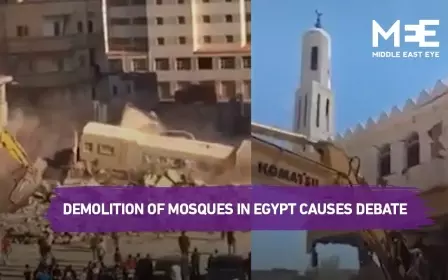Clashes in Egypt's Luxor after police kill man for defending his father
The Egyptian city of Luxor has turned into a militarised area, with heavily armoured police and special forces troops deployed in anticipation of angry demonstrations against the killing of a man by a police officer.
The incident occurred less than a month after police officers in the Giza governorate were accused of torturing to death Islam al-Ostraly, a 26-year-old bird-shop owner, after he refused to pay a bribe.
On 30 September, Awais al-Rawi got into an argument with a police officer who had slapped his father during a raid on their home.
New MEE newsletter: Jerusalem Dispatch
Sign up to get the latest insights and analysis on Israel-Palestine, alongside Turkey Unpacked and other MEE newsletters
As the verbal argument escalated, the officer shot the 38-year-old four times - once in the face - killing the father of two, according to a medical report seen by Middle East Eye
Awad al-Rawi, one of Awais' cousins, told MEE that, on the night in question, security forces stormed into the family house in al-Awamiya, some 30 minutes away from the ancient Luxor Temple, to arrest a family member suspected of having taken part in small-scale nationwide protests last week.
"Once they did not find the wanted person, they decided to arrest Awais' younger brother. When their father intervened, the officer slapped him across the face in front of everybody," said Awad, who witnessed the incident firsthand.
"We are Upper Nile Egyptians. We are proud people and our elders have to be respected. Awais, God bless his soul, could not see his father humiliated," he said, adding that his cousin wanted to confront the officer, which led to an argument.
"The officer then pulled out his side arm and emptied four rounds in Awais, one of which hit his face."
The officer was suspended from work and will be interrogated, one source in the prosecution office told MEE on condition of anonymity.
The source anticipated that the investigation was launched in a move to "contain the anger of the locals".
Like many in the Luxor region, Awais worked several seasonal jobs, including driving a tuktuk, working in construction, farming, and other posts related to tourism. Prior to his death, he was an assistant nurse at Luxor International Hospital.
"All Awais wanted was to hold the officer who slapped his father accountable. None of us was armed, and none of us deal in drugs," Samir, another relative, said.
Anger in upper Egypt
That same night, anger over Awais' killing swelled in the village, which witnessed a similar incident in 2016 when a man was kidnapped by the police and tortured to death.
A spontaneous mass funeral took place as Awais' body was carried to the family's burial site. Mourners started chanting against the police and the government of President Abdel Fattah el-Sisi, including slogans such as "Sisi is the enemy of God" and "retribution by bullets".
Riot police soon moved in to disperse the gathering and fired warning shots as well as teargas, family and friends told MEE, adding that dozens were detained and sent to the state security building in Luxor.
'My heart is aching. I wish I took the bullet'
- Abdel-Hamid al-Rawi, Awais's father
"Funerals and death in upper Egypt are sacred," said Mohamed Abdullah, a merchant in Awamiya who participated in the funeral. "Even when two families are in a vendetta, funerals are still a red line that cannot be crossed."
Clashes broke out between angry mourners who, in the face of teargas, retaliated with rocks. In the chaos that ensued, civilians kidnapped and beat a police officer.
However, after hours of negotiations between a higher ranking official and the elders of the al-Rawi tribe, the officer was released, Abdullah and two other sources told MEE.
The Ministry of Interior, which until now has not addressed or publicly acknowledged Awais' killing, denied on the same day of the clashes that a police officer was kidnapped in Luxor, without giving any details.
Awais' father, Abdel-Hamid al-Rawi, told MEE that his son's death pained him but that he died defending his principles.
"My heart is aching. I wish I took the bullet," he said.
"Nevertheless he died a man defending the honour of his family. We will not accept any condolences until the person who did this is held accountable."
The culture of vendetta and traditional courts are ever present in upper Egypt, where the judiciary and state control are largely focused on the enforcement of the law and arrests, allowing civilians to resort to an ancient, informal justice system to settle disputes among themselves.
'We will not stand with our hands tied'
Since the killing, police in plain clothes have been seen surrounding the street of the Rawi residence, while military police cars roam the entrances and exits of the area in order to prevent any mass gatherings.
Hundreds have been arrested in Egypt since widespread anti-Sisi protests broke out on 20 September in response to a call by exiled whistleblower Mohamed Ali.
Awamiya was no exception, as dozens took to the street to protest against a government demolition campaign that has reportedly affected hundreds of thousands of low-income Egyptians facing either eviction or heavy fines on their unlicensed residential buildings.
On Friday, the elders and families of the Rawi tribe held a funeral prayer in al-Atiq Mosque in Luxor.
'We are Upper Nile Egyptians. We are proud people and our elders have to be respected'
- Awad al-Rawi, cousin
After the prayers, a newly created tribal council released a statement saying it would consider all those who "work with or for the police" as "criminals and terrorists".
The statement warned locals against collaborating or working as spies for the police apparatus.
The council also said that suspected people will undergo "fair customary trials held by the best of our clerics and al-Azhar scholars".
Luxor is the birthplace of the Sheikh Ahmed al-Tayyib, the grand mufti of al-Azhar Mosque in Cairo, and on that account the influence of the prominent Islamic institution is respected in the governorate.
Many in the community expect Tayyib to be a key figure if any negotiations take place between police and locals.
"We will not stand with our hands tied while we see our blood being spilled and our honour humiliated," the tribal council statement, which was widely circulated among the residents of Luxor, read.
The council also called for self-administration, under the control of the state, through the election of "municipalities that would help civilians solve their problems" and the formation of "groups to preserve justice and order until the corrupt and murderous institutions are reformed".
Police brutality
After the news of Awais' death was reported on social media, several users compared his killing to that of George Floyd, a Black man who was killed by police earlier this year in the United States, whose death led to mass demonstrations.
For Egyptians, Awais' death makes him yet another victim of police brutality in the country.
Several human rights organisations have reported that the torture and ill treatment of detainees and civilians, especially from working-class areas, is systematic in Egypt.
Following protests calling for Sisi to step down in the last two weeks, at least 496 people have been detained and numerous home raids have been conducted, especially in villages and working class areas away from central Cairo and Giza, Amnesty International said on Friday.
"The fact that these protesters took to the streets while knowing the very high risk to their lives and safety they were taking shows how desperate they were to demand their economic and social rights," said Philip Luther, Amnesty International's Middle East and North Africa research and advocacy director.
"Videos showing policemen firing birdshot at fleeing people indicate a total disregard for international policing standards."
Luther said the organisation was concerned about the presence of armed forces deployed to police the protests, which puts civilian lives at risk.
Middle East Eye delivers independent and unrivalled coverage and analysis of the Middle East, North Africa and beyond. To learn more about republishing this content and the associated fees, please fill out this form. More about MEE can be found here.


